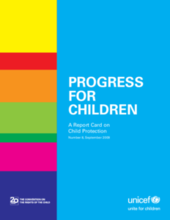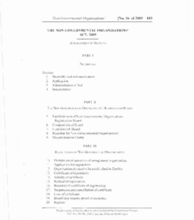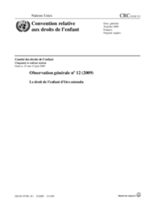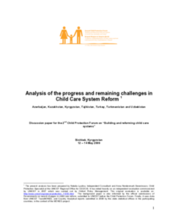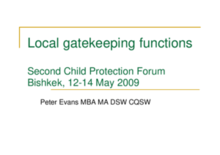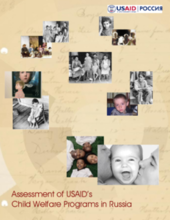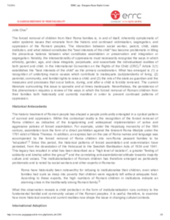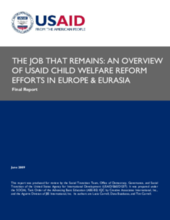Displaying 1501 - 1510 of 1798
The first comprehensive resource on child protection statistics. Includes data on children without parental care, child trafficking, child marriage, children with disabilities, etc.
Contains facts regarding children in alternative care globally as well as suggested lobbying activities for the promotion and adoption of the UN Guidelines on Alternative Care
This Act provides for the co-ordination and registration of non-governmental organisations in Zambia.
Le droit de l’enfant d’être entendu
This resolution was submitted by the Human Rights Council to the General Assembly on 17 June 2019 for consideration with a view to the adoption of the Guidelines for the Alternative Care of Children on the twentieth anniversary of the Convention on the Rights of the Child.
Developed by the UNICEF Regional Office for Central and Eastern Europe/Commonwealth of Independent States as a discussion paper for the 2nd Child Protection Forum on Building and Reforming Child Care Systems
This presentation, conducted by Peter Evans at the Second Child Protection Forum in Bishkek from 12 to14 May, 2009, includes information on gatekeeping, including a definition, the components of gatekeeping, a flowchart of entry routes for children into institutions, outlines of assessments and intervention plans, monthly monitoring and information systems, and more.
The child welfare programs, funded by USAID in Russia, were designed to pilot, disseminate, and help institutionalize modern child welfare services, particularly, child abandonment prevention and professional support of vulnerable children, child welfare institutions, and substitute families. This report reviews program results and sets out recommendations for future program design.
Explores particular vulnerabilities that arise for Roma children and families in regards to care as a result of social marginalization
Examined the eight countries in which USAID supported significant child welfare reform programs: Armenia, Azerbaijan, Belarus, Bosnia-Herzegovina, Georgia, Romania, Russia, and Ukraine. The paper discusses population issues, the current system of child welfare, USAID-funded activities, lessons learned, and best practices.

